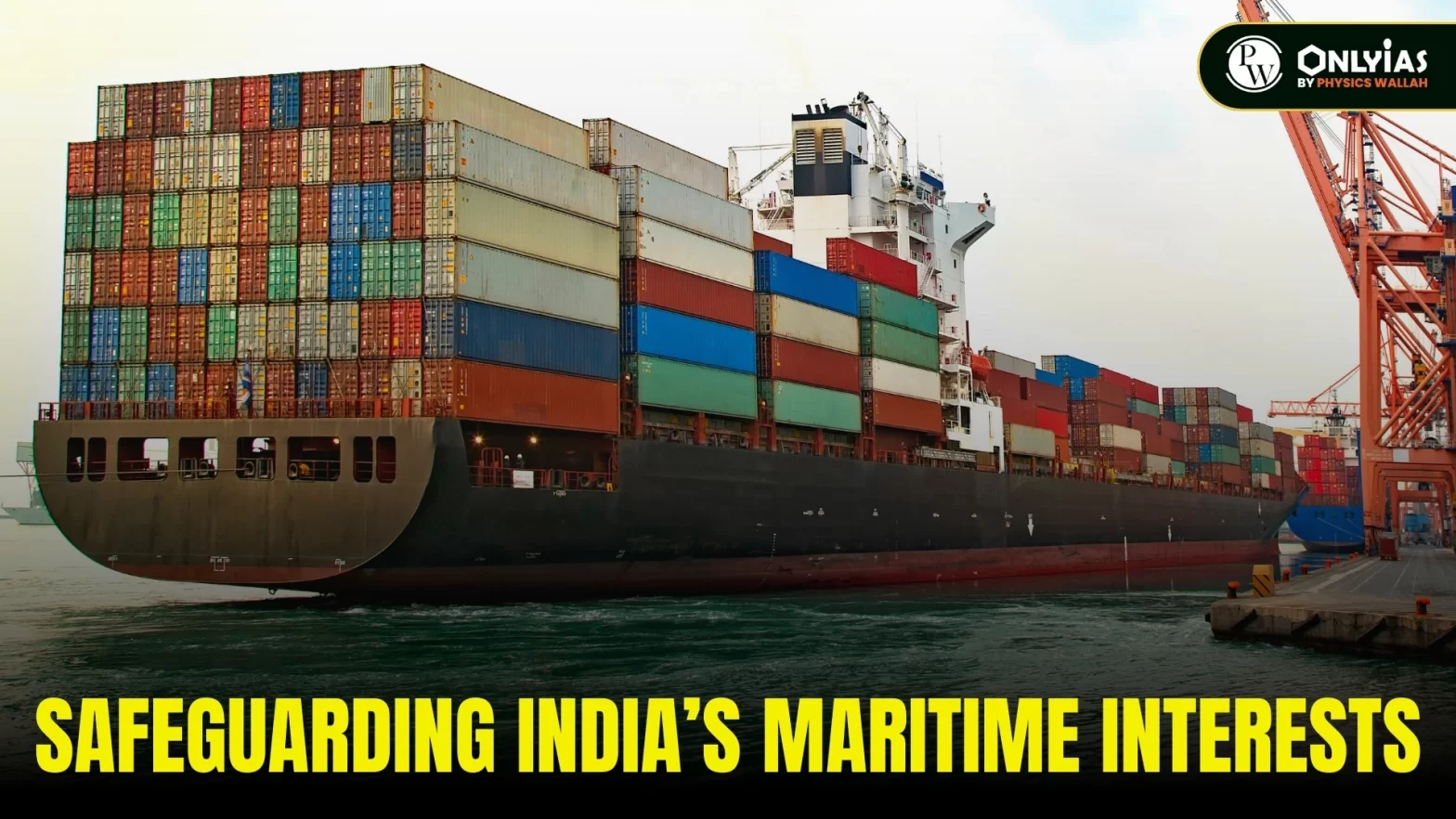Context: This article is based on an Editorial Safeguarding India’s maritime interests which was published in the Financial Express. The developments in the past few months—the Israel-Hamas war and its possibility of accelerating into a larger regional conflict have once again revealed the turbulence in geopolitics.
- Countries are trying to reinforce their strategic positioning through their own specific initiatives and the major focus is on maritime space.
| Relevancy for Mains: India’s Maritime Interests, Significance and Challenges of the Maritime Trade and Maritime Security. |
India’s Maritime Interests – Significance of Maritime Trade
- Development: From ancient times, maritime trade has played a key role in social and economic development and urbanization.
- In India, the Harappan Era’s major ports (Lothal, Dholavira, etc.,) handled maritime trade globally.
- Global Supply Chains: Presently, more than 80% of global merchandise trade (by volume) is transported via the sea route.
- A considerable and increasing proportion is transported to ports in containers, which form an essential part of global supply chains.
- Crucial Opportunities: While geographical limitations constrain the benefits of mega land-based corridors or projects, maritime assets like ports and related areas offer crucial opportunities.
- Energy Supply and Stability: India’s access to the Arabian Sea and the Bay of Bengal provides access to a broader region. Proximity to maritime routes helps secure energy supplies and maintain stability in the Indian Ocean and can counterweight China.
Significance of Ports:
- Dominance Maker: The port power in a country helps it acquire dominance and makes it both a major player in the seas, especially maritime transport and naval capability, and access to the landmass.
- The twenty-first-century global geopolitical order will be determined by dominance in port power.
- Dual Opportunity: Ports connect the two geographical domains of land and sea as geographic sites with the dual roles of economic gateways and nodes of geostrategic projections.
- Pillar in Global Economy: The role of ports as the pillar in the global economy is a major reason for the World Bank and S&P Global Markets to track port performance for nearly 350 global ports in the Container Ports Performance Index (CPPI).
Examples of Ports Significance:
- The Case of China:
- Major Pillar of Export: The rapid rise of China’s economy is largely due to surging exports globally and maritime shipping has been central to its export-led growth.
- Development of Efficient Ports: According to the UNCTAD’s Liner Shipping Connectivity Index (LSCI) several of China’s container ports rank quite high.
- The Case of Sri Lanka:
-
- Colombo West International Terminal Pvt (CWIT): The US International Development Finance Corporation (DFC) is funding $553 million in CWIT, a consortium involving India’s largest port operator Adani Ports and SEZ Ltd., and two Sri Lankan entities.
- Significance: CWIT will help growing economies in the Bay of Bengal with major shipping routes and its prime proximity to these expanding markets.
- Significant for India: This will strengthen India’s geo-strategic footprint in the region, in the context of Chinese frauds to gain hegemony in the region.
Challenges that need to be Tackled:
- Delays and Disruptions: Ports and terminals, particularly for containers, are often causes of shipment delays, supply chain disruptions, additional costs, and reduced competitiveness.
- Trade Hindrance: Instead of facilitating trade, inefficiency in ports increases the cost of imports and exports, slows turn-around, reduces competitiveness, and inhibits economic growth and investors’ confidence.
Need of the Hour:
- Work upon Efficiency: The efficiency of high-quality port infrastructure and logistics is a sine qua non for supporting manufacturing, competitiveness, exports, creation of employment, incomes, and investments.
- Strategic Investment: As India’s economic influence grows, its geopolitical interests will only be safeguarded through investments in strategic assets in countries like Sri Lanka, Nepal, Bangladesh, and Maldives, among others.
Conclusion:
India’s Maritime Interests are not only vital for economic development but also crucial for ensuring energy security and geopolitical stability in the Indian Ocean region. Strengthening port infrastructure, addressing challenges, and strategic investments are imperative to safeguarding these interests in an evolving global scenario.
![]() 24 Nov 2023
24 Nov 2023
